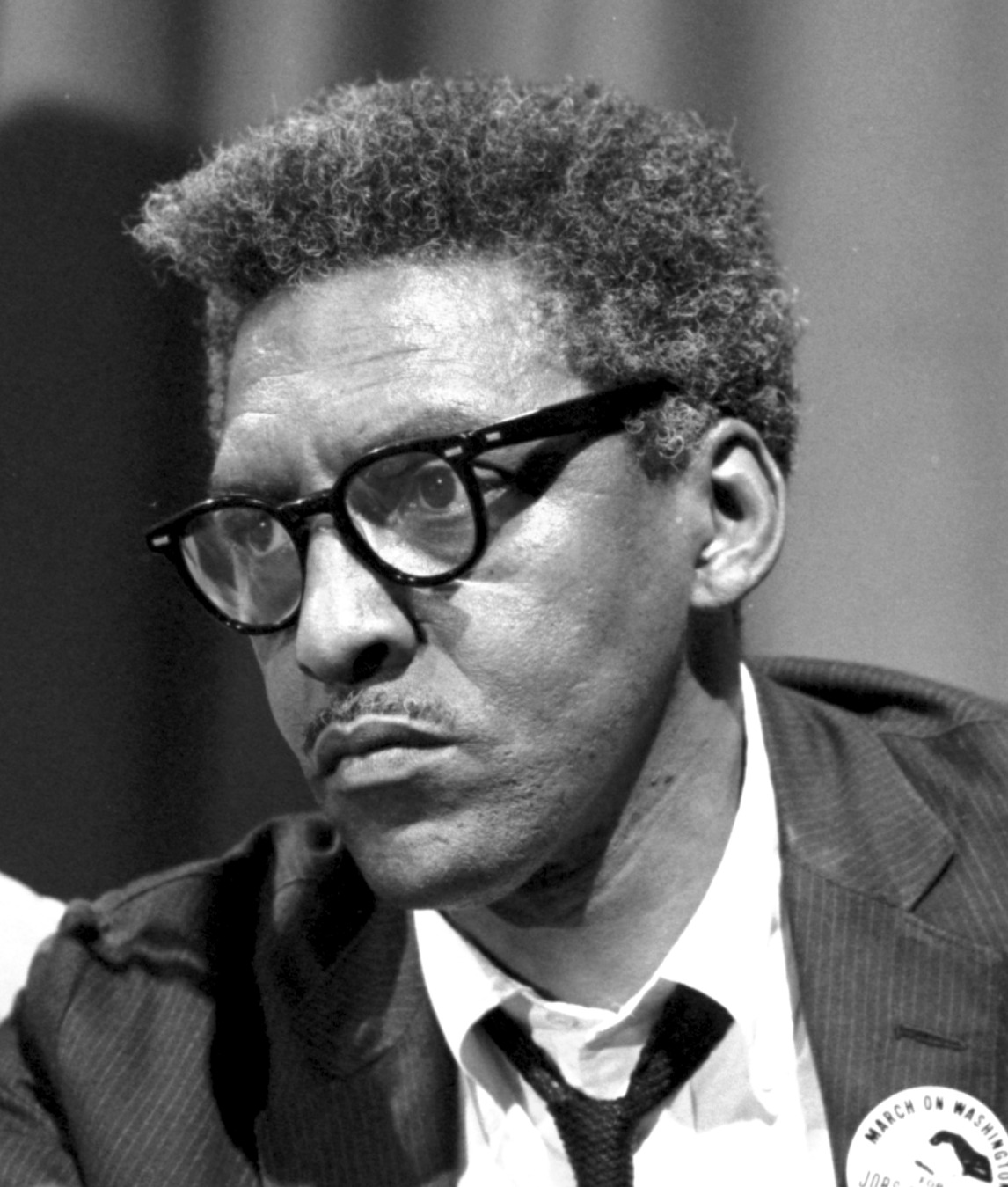Pioneers in Peacebuilding: Bayard Rustin
On the tails of President Barack Obama’s most recent executive order to ban workplace discrimination against transgender federal employees, it’s important to take a moment and reflect on the LGBT leaders who have paved the way for such remarkable developments in sexual equality. This month Conscience has decided to spotlight Bayard Rustin as our Pioneer in Peacebuilding.

Bayard Rustin is an oft-forgotten gay American icon. His brilliance is marked by his resolute bravery and openness at a time in American history when being different could, quite literally, have you killed. As a Quaker, a member of the Young Communist League, a conscientious objector jailed for refusing to fight in World War II and as an open homosexual who spent time in prison after being caught in a car with two other men, he was an undisputed radical. This long list of political incorrectness did not stop him from being the chief organizer of the March on Washington. He continually lent his voice and passion to the humanitarian causes that he believed in and vigorously championed until his death in 1987.
Within the EU and throughout states in the US, laws for LGBT equality are spreading. Equal marriage, adoption rights, hospital visitation and protection in the workplace are steadily growing. But with 76+ countries holding anti-homosexuality laws, it’s not glittery gay pride parade floats and ‘Orange Is The New Black’ everywhere.

In addressing his civil rights goals, Bayard implemented long-term political strategies within large-scale protesting. He was pragmatic, as well as charismatic, allowing him to evenly spread his influence. He did not limit himself to a corner of action. He simultaneously campaigned with small-scale lobbying groups such as The Fellowship of Reconciliation, all while publicly pushing FDR to reform anti-discrimination laws. His efficiency lay in his range and his efficacy relied on his boldness.
Calling the current state of LGBT rights in Russia ghastly would be an understatement. Presently, the Russian government has issued a branding of LGBT organisations, or organisations that have ever supported the LGBT cause, as foreign agents. This evolves into a bureaucratic crackdown on all of the surrounding forces that are necessary in surviving as a business or a person. Employers, landlords, and banks have the heat put up underneath them to drop, harass, and excommunicate anyone associated with LGBT activism. In conjunction with these laws is the horrifying rise of hate-based violence against anyone thought to be gay. What is equally appalling is the numbness that the Russian government has towards these travesties with President Putin refusing to publicly address these bloody realities.
Russia’s radical punks heard round the world-Pussy Riot-have been imprisoned, disbanded, and upon release assaulted for screaming their truth and living with Bayard-esque vigour. If Rustin were alive I believe that he would remind the women that a mob is not the end of the fight. Media attention is a necessary step that requires the utmost fortitude but it’s only the first. There are systematic approaches that whoever will be brave enough to address Russia’s inequalities must implement in order to find success.

Russian rebels must engage in the routine of campaigning, and engage in the patient work of changing policy. It’s a duller process that lacks the excitement of protesting but its effectiveness is unparalleled. After you’ve garnered the country’s attention with fire, the clear way forward is through political communication and persuasive lobbying. Mobilization and chanting must be coupled with phone calls to MPs, letter writing to Senators, and in the case of Russia, potential direct Western NGO or small-scale political support from a federal power.
Bayard’s organization of the March on Washington coupled with his list of demands for American legislation generated the Civil Rights Act. Change is not a song, an anthem, or a march. Change is a journey that requires sensibility as much as it requires a charismatic cultural reference. The road map to long-term change needs to be taken slowly and thoroughly with blazes of fireworks enlightening the journey.



No comments:
Post a Comment